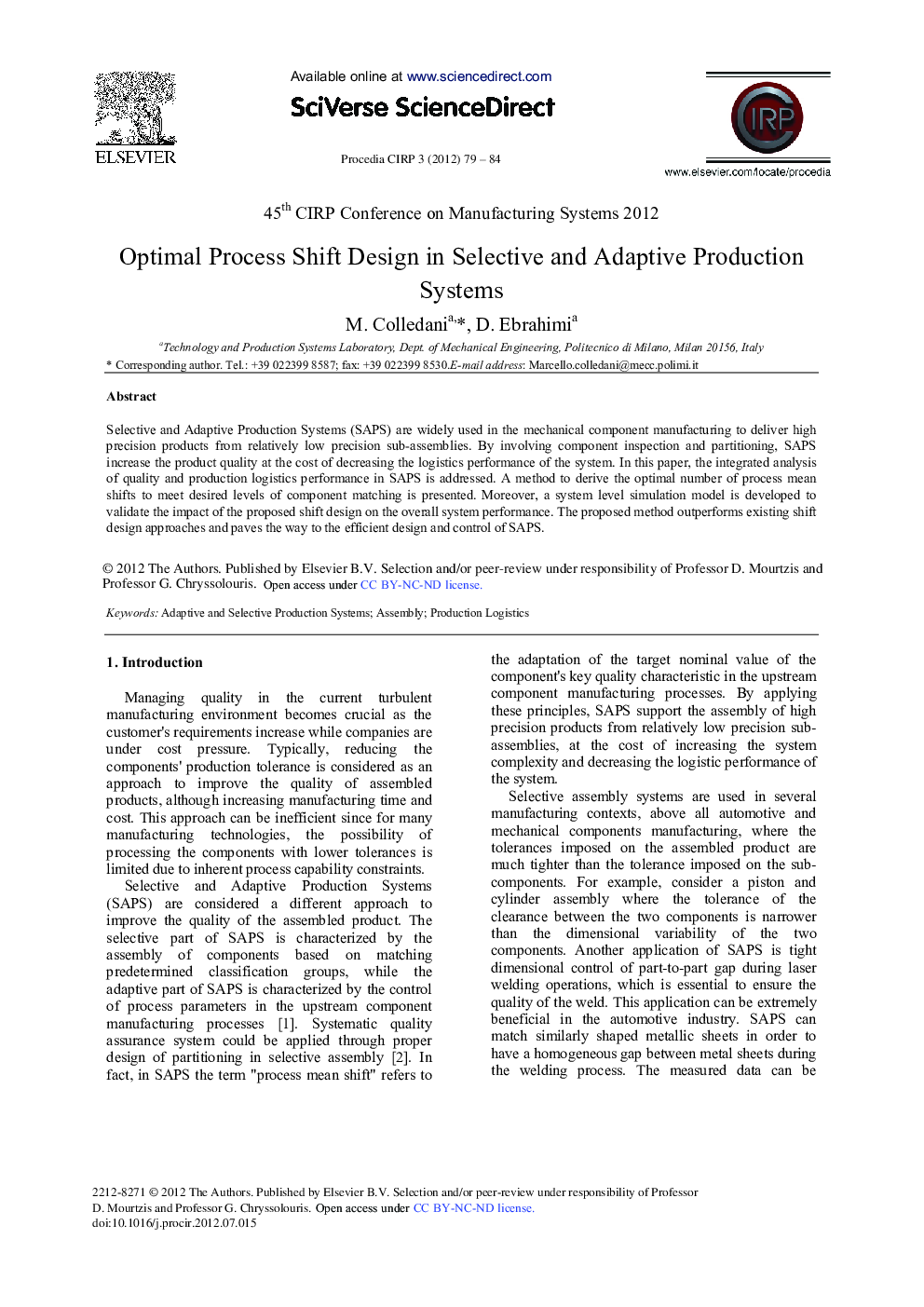| Article ID | Journal | Published Year | Pages | File Type |
|---|---|---|---|---|
| 1701615 | Procedia CIRP | 2012 | 6 Pages |
Selective and Adaptive Production Systems (SAPS) are widely used in the mechanical component manufacturing to deliver high precision products from relatively low precision sub-assemblies. By involving component inspection and partitioning, SAPS increase the product quality at the cost of decreasing the logistics performance of the system. In this paper, the integrated analysis of quality and production logistics performance in SAPS is addressed. A method to derive the optimal number of process mean shifts to meet desired levels of component matching is presented. Moreover, a system level simulation model is developed to validate the impact of the proposed shift design on the overall system performance. The proposed method outperforms existing shift design approaches and paves the way to the efficient design and control of SAPS.
